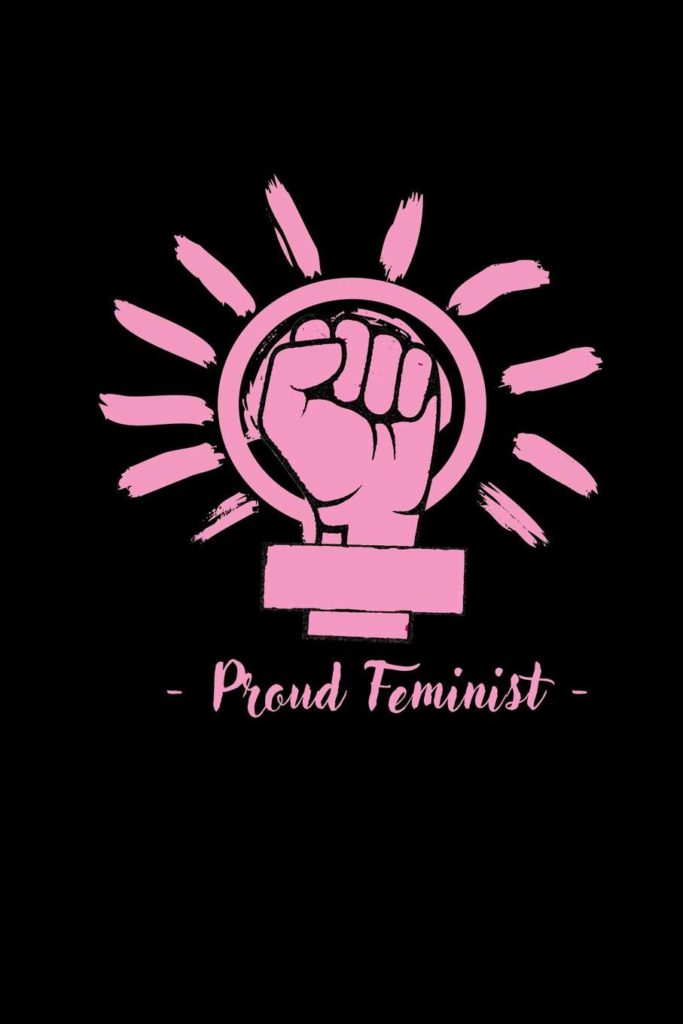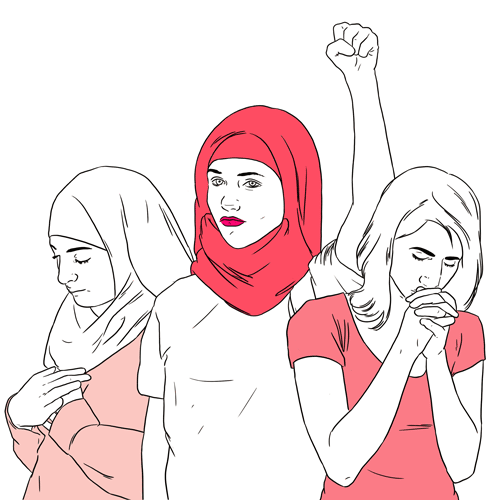The word Feminism symbolizes to support women’s rights on the grounds of gender equality. It means that there should be economic, social, political, and personal equality among the sexes. Feminism was one of the most significant political and social movements of the 19th and 20th centuries. It defines a political, cultural, or economic campaign aimed at establishing equal rights and legal protection.
Feminism comprises political and sociological theories and philosophies concerned with gender difference issues and a movement that supports gender equality for women and campaigns for women’s rights and interests. The fundamental notion in the feminist analysis is patriarchy, which draws attention to the totality of oppression and exploitation to which women are subject.
This highlights the political importance of gender, understood to refer to socially imposed rather than biological differences between women and men. Most feminists view gender as a political paradigm, usually based upon stereotypes of ‘feminine’ and ‘masculine’ behavior and social roles.

Why is the importance of feminism in India
Indian history has excellent examples of feminists. We had feminists even before the world was introduced to this term. Draupadi, a woman, born out of the fire, retaliated the humiliation meted out to her in Mahabharata’s tale. Durga Maa, an incarnation of goddess Parvati, was created as an amalgamation of all the Gods to destroy evil. Devi Sita fought for her independence and raised her two sons single-handedly in Ramayana. Rani Lakshmi Bai, Chand Bibi, Savitribai Phule, Fatima Sheikh are other prominent examples of immense courage and power.
A country like India needs to promote feminism :
- Because a woman in Indian society is supposed to be a male’s responsibility throughout her life, whether it be her father, brother, husband, or son. Practices like the dowry system, the purdah system, where a woman is veiled behind a ghoonghat, highlight the extent of male dominance.
- Because we have slandered the pureness of something as natural as menstruation and turned it into something unmentionable taboo. Some Indian women on their periods are treated as untouchables. They aren’t allowed to enter the kitchen, forced to sleep on the floor; they cannot be touched, spoken to, or share the same table with others.
- Because even professions and family roles have been stereotyped based on gender in our Indian society. Men are sole breadwinners of a family, and females are presumed to single-handedly take up managing the home.
- Because we need to promote gender equality and ensure women are respected regardless of their choices in their personal and professional lives.

Pseudo Feminism: Misunderstood Concept of Feminism
Misunderstanding feminism has evidently provoked many people–to denounce it and stir away from it. The idea of Feminism is misunderstood today in the following ways:
- “Feminism” is considered equivalent to male-hating, men-bashing, and female-superiority.
- Pseudo Feminism supports the notion that all men are the same, or they are all sexist.
- One cannot be a feminist if they believe in the institution of marriage and prefer having kids and being housewives.
- Men cannot be feminists.
- Also, many men believe it is not “manly enough” to be a feminist.
- Worst of all, some men think giving women equal rights means giving up their own rights.
- Many women believe that giving them special privileges is anti-Feminism.

The truth about Feminism:
In Reality, Feminism is very different from the misunderstood concept. With various arguments over the definition of the word, the true meaning of gender equality is lost. In real sense, it includes the following components.
- It bolsters for equal opportunities in all spheres of life for both men and women.
- It focusses on the notion that women should get a fair share of the rights they deserve and gain economic independence and social and political equality.
- Women should have decision making power for their own lives. Ranging from career and professional choices to choosing dress and life partners, women should be given the freedom to choose.
- In no way does it mean to displace men of their rights, and women be considered superior to men.
- Gender has nothing to do with advocating for women’s rights.
- Cultural and religious constraints should be shattered, women have a sense of achieving what they believe in.
- Feminism is not about putting women forward; it merely means putting them equal to another gender.
- Feminism is not against women who want to become mothers or housewives; it is against society’s notion where women are regarded as nothing more than childbearing machines.

Conclusion:
The word “feminism” has been dragged through the mud and has been misunderstood by so many people the world over, but if we are to see more tremendous strides in equality for all, it is necessary to address significant misconceptions and include men, women, and all genders in our quest to attain true equality. It is well expressed in studies that feminism is a struggle for women’s equality, to make them equal to men.
Feminism is merely an effort to change society from being just androcentric. To achieve this, Feminist activists across the globe have campaigned for women’s legal rights (rights of contract, property rights, voting rights); for women’s right to bodily integrity and autonomy, for abortion rights, and for reproductive rights (including access to contraception and quality prenatal care); for protection of women and girls from domestic violence, sexual harassment and rape; for workplace rights, including maternity leave and equal pay; against misogyny; and against other forms of gender-specific discrimination against women. Thus, we must work collectively towards feminism and bring about the most needed change of the century.




















